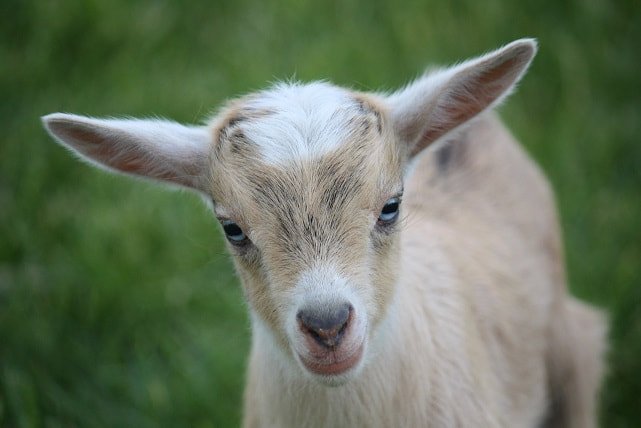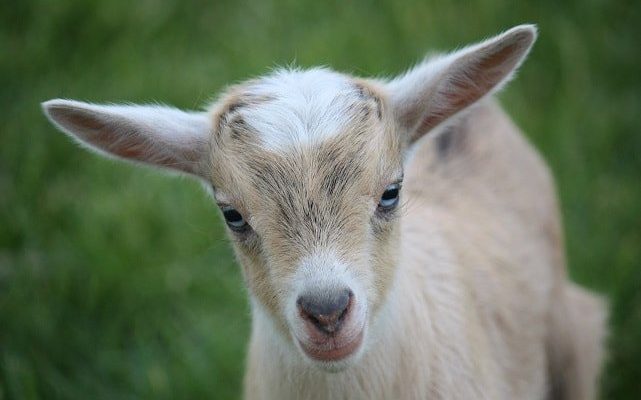
Now, you might be wondering what makes these little guys so special. Let me explain. Nigerian Dwarf Goats are known for their playful nature, adorable looks, and versatility. Whether you’re considering them as part of your homestead or just curious about them, knowing their history, traits, and primary uses can help you appreciate why they’re such a popular choice among goat enthusiasts.
A Brief History of Nigerian Dwarf Goats
Nigerian Dwarf Goats have a fascinating background that dates back centuries. Originating in West Africa, these goats were initially brought to the United States in the 1970s. It’s believed they were imported by zoo enthusiasts and then quickly gained popularity in the pet and dairy goat communities. These little goats were like a breath of fresh air, bringing charm and cuteness that few could resist.
What makes their history even more interesting is their dual-purpose utility. In their homeland, Nigerian Dwarfs were kept for both milk and meat. They adapted beautifully to various climates, making them a practical choice for farmers. With their compact size and ability to thrive on lower-quality forage, they became a favorite for small farms and homesteads. Their journey from African farms to American backyards showcases how versatile and resilient they truly are.
Physical Traits of Nigerian Dwarf Goats
Nigerian Dwarf Goats are the epitome of cuteness in the goat world. Standing at around 17 to 21 inches tall at the shoulder, they’re truly pocket-sized. They come in a variety of colors and patterns, which means you could have a whole herd that looks like a patchwork quilt! Some common colors include black, chocolate, and various combinations mixed with white.
Their bodies are compact, with a broad stance and a slightly convex back. One of the most striking features is their expressive eyes. They can swing from playful to inquisitive in a heartbeat, and their little ears perk up when they hear something interesting. Honestly, who can resist that charming face? Their physical traits aren’t just for looks; they help them keep cool in warm climates and stay agile while frolicking around.
Temperament and Personality
Now let’s talk about their personality because this is where Nigerian Dwarf Goats truly shine! They are known for their friendly and social nature. These goats thrive in the company of humans and other animals. You might find them following you around or nudging your hand for a scratch. You might be wondering if they’re suitable for families—absolutely! Their friendly demeanor makes them excellent companions for kids and adults alike.
These goats are also quite curious, often getting themselves into amusing situations. Whether they’re climbing on the nearest rock or investigating a new object in their pen, their spirited playfulness keeps things lively. When it comes to training, they are surprisingly intelligent, and with some patience, you can teach them tricks or even commands. Their antics will surely bring smiles and laughter to your household.
Primary Uses of Nigerian Dwarf Goats
You might be surprised at just how versatile Nigerian Dwarf Goats can be. While their adorable looks might make you think they’re just pets, they have several practical uses. One of the most significant is their milk production. Despite their small size, they can produce a decent amount of creamy milk—up to two quarts per day at their peak!
Their milk is known for having a high butterfat content, making it great for cheese and yogurt. If you love homemade dairy products, having a Nigerian Dwarf goat might just be the perfect addition to your homestead. Plus, the milk can be easily incorporated into your daily routine. Imagine starting your day with fresh goat milk in your coffee or a slice of cheese on your toast.
Companionship and Petting Zoos
Beyond milk production, Nigerian Dwarfs are exceptional companions. They can make fantastic pets for children and adults alike. Their manageable size, friendly nature, and low-maintenance lifestyle mean they don’t require as much space as larger goats. They can graze in small yards or farms, which makes them perfect for urban settings too.
Another popular use for these goats is in petting zoos and educational farms. Their gentle temperament makes them ideal for interacting with people, especially children. Visitors can learn about caring for animals while bonding with these playful goats. So, if you have a local petting zoo, there’s a good chance you’ll meet a charming Nigerian Dwarf Goat eager to greet you!
Caring for Nigerian Dwarf Goats
If you’re thinking about introducing Nigerian Dwarf Goats into your life, it’s essential to know how to care for them properly. Like any pet, they require regular attention, proper nutrition, and a safe environment. A balanced diet rich in hay, grains, and fresh vegetables is crucial for their health. They also enjoy treats like apples and carrots—just remember to feed those in moderation.
Creating a comfortable space for them is equally important. A sheltered area protected from extreme weather is ideal, along with ample space for them to roam and play. Remember, they’re social animals, so having at least two goats is usually recommended to keep them happy and fulfilled. You wouldn’t want them to feel lonely!
Health Considerations
Regular veterinary care is essential to ensure your Nigerian Dwarf Goats stay healthy. This includes vaccinations, deworming, and check-ups. Monitoring their behavior can also help catch any issues early. If they seem off or lethargic, it’s best to consult a vet.
Additionally, hoof trimming is a crucial part of their maintenance. Their hooves can grow too long, leading to discomfort or mobility issues if not regularly trimmed. With proper care and attention, you can expect your Nigerian Dwarf Goats to thrive and bring joy to your life for many years.
Nigerian Dwarf Goats are more than just adorable pets; they’re hardworking, friendly companions that can brighten your day. From their interesting history to their many uses—from dairy production to companionship—these little goats have secured a special place in the hearts of many.
Whether you’re looking to start a small farm or simply want a cute addition to your backyard, you can’t go wrong with a Nigerian Dwarf Goat. Their playful nature, coupled with their practicality, makes them a delightful choice for any goat enthusiast. So, are you ready to welcome one of these charming creatures into your life?

